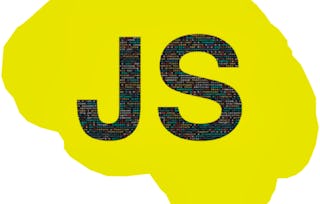This is the second course in a sequence of four courses that develops essential 21st century computational thinking (CT) skills using the popular JavaScript programming language.

Computational Thinking with JavaScript 2: Model & Analyse

Computational Thinking with JavaScript 2: Model & Analyse
This course is part of Computational Thinking with JavaScript Specialization


Instructors: Quintin Cutts
Access provided by Coursera for Reliance Family
Recommended experience
What you'll learn
Learners will discover how to process, analyse and visualize data using simple JavaScript libraries and data structures.
Skills you'll gain
Details to know

Add to your LinkedIn profile
See how employees at top companies are mastering in-demand skills

Build your subject-matter expertise
- Learn new concepts from industry experts
- Gain a foundational understanding of a subject or tool
- Develop job-relevant skills with hands-on projects
- Earn a shareable career certificate

There are 4 modules in this course
We introduce the array data structure in JavaScript, which is used to represent an ordered sequence of data values.
What's included
6 videos2 readings2 assignments1 programming assignment3 discussion prompts3 ungraded labs
We introduce JavaScript objects, which are named collections of values, used to model real-world entities.
What's included
4 videos5 assignments1 discussion prompt3 ungraded labs
Data structures can be embedded inside other data structures, to model more complex real-world entities.
What's included
4 videos1 reading2 assignments2 discussion prompts4 ungraded labs
We integrate the various concepts we have introduced throughout this course, to build a data processing system to cluster data into similar groups
What's included
3 videos2 readings1 assignment1 peer review1 discussion prompt1 ungraded lab
Earn a career certificate
Add this credential to your LinkedIn profile, resume, or CV. Share it on social media and in your performance review.
Offered by
Why people choose Coursera for their career

Felipe M.

Jennifer J.

Larry W.

Chaitanya A.
Explore more from Computer Science

University of Glasgow

University of Glasgow

University of Glasgow

University of Glasgow
¹ Some assignments in this course are AI-graded. For these assignments, your data will be used in accordance with Coursera's Privacy Notice.

